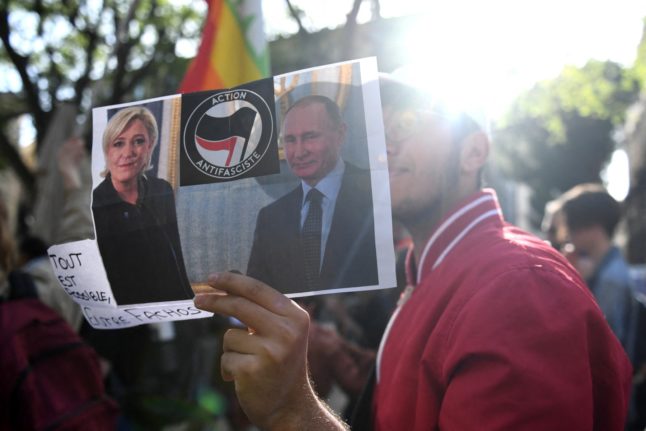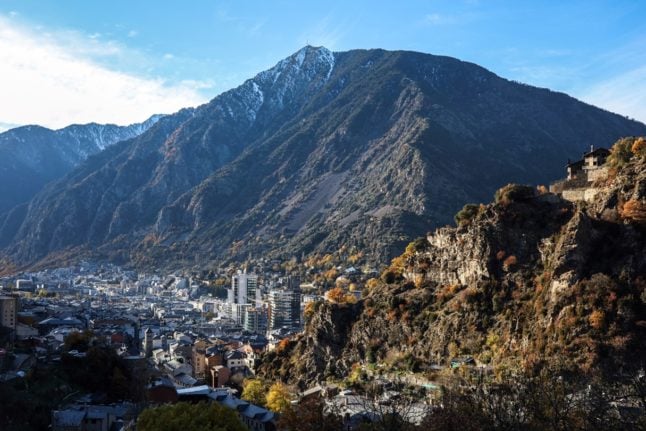A deep-dive opinion poll for Le Monde this week found that the far-right, anti-Brussels and historically pro-Putin Rassemblement National leads President Emmanuel Macron’s Europhile and pro-Kyiv, centrist alliance by 13 points.
Thirteen points! And rising.
Yes, yes, I know. It is misleading to present the European campaign as a referendum on Macron’s support for Ukraine against Russia. It is misleading but not entirely wrong.
The European election is not – or not yet – an opinion poll on the Ukraine war; nor is it an opinion poll on French support for the European Union.
Over 70 percent of French people support Kyiv, according to the most recent polls. Almost as many people support continuing French economic and military aid to Ukraine.
Listen to John discussing the European elections in the latest episode of Talking France – download it here or listen on the link below
Anti-European parties of Right and Left are polling at a combined 46 percent but 73 percent of those questioned in this week’s Ipsos-Le Monde survey of over 11,000 voters said that they value the “European project”.
So why so much support for the Eurosceptic and Putin worshipping, or now Putin-ambivalent, Rassemblement National?
The election is the first nationwide test of voter opinion since the parliamentary elections of June 2022. It will be, first and foremost, rightly or wrongly, a “mid-term” judgement on President Macron’s second spell as head of state.
In other words, it will be a referendum on pension reform, the increased cost of living, crime, immigration, Macron himself and the thousand gripes which French electors always have against their leaders.
Does it matter? Yes, it does. A big Far Right victory in France on June 9th would increase – but not guarantee – the chances of a Marine Le Pen victory in the next presidential election in 2027.
It would cripple Macron’s hopes of carrying through new social and economic reforms in the next three years. It would increase the chances that his minority government will be voted down in the National Assembly, plunging France into domestic confusion at a time of deep global crisis.
President Macron might have chosen to put his head under the blanket. He might have played down the European elections as an unfortunate but inevitable mid-term reverse. He is not, after all, able to run for a third term in April 2027.
Instead, he has chosen to dramatise the European poll.
His appointment in January of the dynamic Gabriel Attal as France’s youngest ever Prime Minister was intended to expose the vacuous eloquence of the young leader of the Rassemblement National’s list of candidates, Jordan Bardella.
In recent days, the Macron camp has sought to turn the election into a two-way contest: the government versus the Rassemblement National; Kyiv versus Moscow.
The head of Macron’s campaign, Valérie Hayer, accused Le Pen and her party of being “traitors to France”. Gabriel Attal said that “Russian troops” were already on French soil – in the form of the 88 Lepennist members of the National Assembly.
In Tuesday’s assembly debate on a ten-year France-Ukraine security pact, there was a 372-99 vote in favour. The hard left La France Insoumise and the Communists voted No and the Far Right abstained.
The foreign minister Stéphane Séjourné said this was a “moment of clarification”, adding: “There are those who are with Ukraine and there are the extremists who are with the Kremlin.”
A tricky question arises. Was President Macron’s decision last month to lift the taboo on talk of deployment of Nato troops in Ukraine also an electoral ploy? Was it a gambit to dramatise the election and mobilise the centrist, pro-European vote discouraged by seven years of Macronism?
There is no doubt that the government plans to make Marine Le Pen’s miserable record as a Putin-fancier a big issue in its campaign. And why not? It is legitimate to try to expose the truth behind the fake moderation of the Rassemblement National.
The president’s core argument is that Le Pen and the Rassemblement National are an “enemy within” – Putin’s wooden horse in France. Stopping a runaway Le Pen victory in June is also a way of defeating Putin.
But Macron could have cornered Le Pen without talk of sending French troops to Ukraine. The possibility of French boots on the ground is opposed by 75 percent of French voters. In Tuesday night’s Ukraine debate, all opposition parties of Right and Left, not just the RN, accused Macron of playing with nuclear fire.
The President’s unexpected talk of “no red lines” and “doing everything it takes” seems to have been driven by other factors. They include an increase in Russian verbal and physical attacks on France like the cyber assault on several ministries and agencies this week.
Macron is also exasperated with what he sees as the weak position on Ukraine of the German chancellor, Olaf Scholz (whom he will meet on Friday). He is increasingly anxious about the possibility of a Donald Trump second term. He wanted to warn Vladimir Putin that US backsliding would not be the end of western support for Kyiv.
The boots-on-the-ground announcement will inevitably become part of the campaign – but not necessarily to Macron’s advantage.
His camp has three months to convert the election from a vote against the President to a vote against Putin. Can that work? Maybe. Le Pen’s party has a recent history of underperforming the opinion polls.
Macron has no chance of “winning” the election but a Bardella-Le Pen lead of only, say, 5 to 6 percent on June 9th could be claimed as a moral victory. As things stand, the Rassemblement National lead over Macron is expanding – up to 18 percent in this week’s Le Monde poll.
Macron has little hope of converting the Le Pen and Bardella voters, his aim is to expand the likely electorate, now only 42 percent of registered votes, compared to the 50 percent who voted in the last European elections in 2019. He also hopes to win back centrist voters who have moved to the Socialist Party or the Greens.
But a conundrum remains. Macron appears to have damaged his own strategy. He wants to use Ukraine as a vote-winner. His boots-on-the-ground initiative looks like a vote loser.



 Please whitelist us to continue reading.
Please whitelist us to continue reading.
Thank you John Lichfield for your continuing excellence and informative reporting.